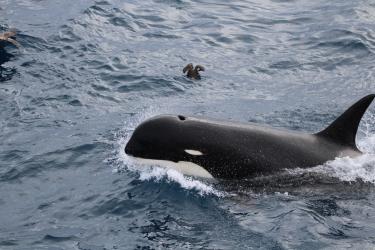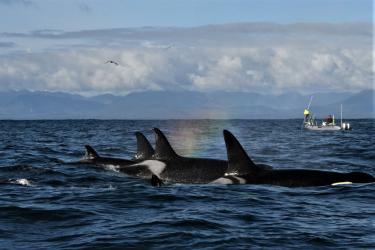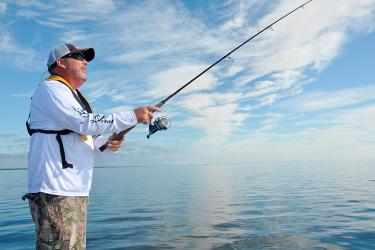In June the Port State Measures Agreement (PSMA) entered into force globally, marking a major milestone in the effort to combat illegal, unreported, and unregulated (IUU) fishing. To maximize the effectiveness of the PSMA, broad implementation is critical and international capacity building has become of the utmost importance. NOAA’s Office of Law Enforcement (OLE) stepped up to ensure domestic implementation of the operational provisions went forward as quickly as possible.
NOAA has responsibility for enforcing marine resource laws of the United States and is the lead agency for enforcement of the PSMA. OLE was also tasked with providing technical assistance to other countries for the PSMA, under the President’s Task Force. So, OLE went to work on an implementation plan, as well as creating training modules for state, territorial, and international partners. Before the training was initiated in the U.S. territories, there was a 3-day conference with staff from OLE HQ, the national training team, and Pacific Island Division. In this meeting, national level training materials were refined and tailored to the specific needs of the Pacific Island Region as well as reviewed to ensure the modules were comprehensive but as simple as possible.
“We wanted to make sure that the training material is easy to understand, yet covers all areas necessary to meet PSMA requirements,” said Deputy Special Agent in Charge Martina Sagapolu of OLE-PID. “We knew the implementation of PSMA will directly impact American Samoa because this is the main U.S. port where the foreign fleet delivers its catch daily. The (Pago Pago) port sees all sizes of FFV and the inspection process under PSMA is arduous. Ensuring the training material was simple yet straightforward is critical for our partners.”
After the conference, training commenced — first with American Samoa, then Guam.
“The training was extremely beneficial to all involved,” said Special Agent Todd Dubois, Assistant Director of Operations for OLE. “The American Samoa Department of Marine and Wildlife Resources officers that participated in the workshop were very receptive to the implementation training. There were numerous discussions that highlighted the importance of information sharing, collaborative enforcement efforts and thorough vessel inspections to further promote PSMA compliance and combat IUU fishing.”
Adding, “There were also discussions that helped NOAA enforcement personnel to better understand the intricacies of remote ports such as Pago Pago; things that we wouldn’t otherwise have knowledge about or experience with in most of our continental U.S. locations. This has helped us further develop our training modules for capacity building sessions with international partners.”
While the standards outlined in the PSMA have long been the standards by which OLE conducts everyday inspections, some partnering organizations are unfamiliar with these procedures. To ensure proper training, practical exercises were conducted. American Samoa enforcement officers walked through applying their newly-acquired knowledge and documenting numerous violations.
OLE-PSMA trainer and Knauss Sea Grant Fellow, Katheryn Patterson, explained that part of the training included highlighting how information can be preloaded into inspection forms to reduce clerical work.
“In our lessons, we encourage officers to stay curious when boarding a vessel,” she said. “We want them to ask a lot of questions before and after an inspection and when onboard a vessel.”
Following the week long training in American Samoa, OLE moved to Guam, where the level and nature of the fish landing activity subject to PSMA is uniquely different.
“Our Guam JEAs have a high level of training and knowledge in fisheries,” said Patterson. “Our Maritime Interdiction Task Force (Customs and Quarantine) partners are already boarding all vessels, daily, and our new partners in the Department of Agriculture will soon be involved as well. The training on implementing PSMA will enhance their capabilities while conducting these boardings.”
Patterson pointed out that the most helpful training modules for our partners in Guam were the PSMA 101, which articulates the necessary information from the rather lengthy agreement and U.S. legislation; U.S. implementation; and regional fisheries management organization conservation and management measures presentation.
Next up, the OLE training team will head to Indonesia for international capacity building.
“We’ve been working with Indonesia for years,” said Dubois. “And, with the PSMA in place, we’re better able to assist with capacity building and technical assistance on the operational enforcement aspects of the Agreement.
“International collaboration and communication is essential in deterring and preventing IUU fishing. We look forward to continuing our collective efforts to combat IUU with Indonesia and to future training activities with all of our international partners.”
-
Story by Ally Rogers, communications officer for NOAA’s Office of Law Enforcement. To contact her, please call 301-427-8255 or email allyson.rogers@noaa.gov.



